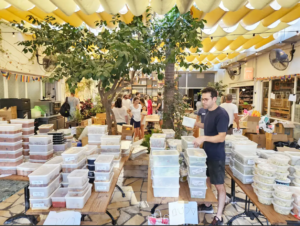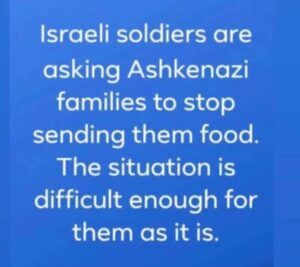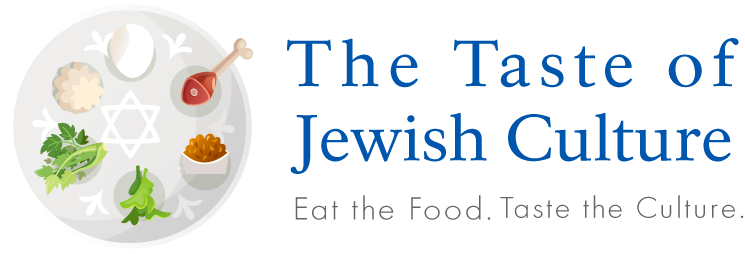In light of the horrific and ongoing pain and losses that Israel (and the Jewish people at large) endured over the past month, we are all trying our hardest to do what Jews have always done in the face of adversity: persevere. And perhaps not surprisingly, food has played a large role in how we have coped and supported each other.
I want to take a few minutes here to highlight a few of the ways in which food has been used in Israel as a healing mechanism at this time, including some continuing and even still-upcoming efforts.
Food is Love

So the food-related sharing that is going on right now is unsurprisingly the most basic level of response that we’re seeing. Immediately upon the call up of reserves, the whole country shifted into high gear preparing or buying food for hundreds of thousands of soldiers. Of course, the army feeds its personnel, but they were probably not prepared for the immediate influx of hundreds of thousands of more soldiers. More than that, this is an opportunity to give them food that tastes better, and is supplied with love. Numerous videos have shown how much the soldiers appreciate even the smallest of these gestures, and since feeding someone else requires two parties (the one who feeds and the one who gets fed), it also helps the providers feel good — at least as important a task.
One moving viral video in the beginning of the war showed armored personnel carriers rolling towards the front, with tons of Israelis on the sides of the road just tossing sandwiches, bags of chips, and bottle of soda to the mobilized reservists. Other social media posts highlighted how word of a group of soldiers due near a town led to a rapid deployment of locals who created an elaborate spread for them in virtually no time at all. And adding to the love, so many of these food deliveries come with handwritten notes of support, pictures drawn by small children, and more.
On the Shabbat meal front, I have one friend who focused on the hundreds of thousands more Israelis who have been internally displaced, moved from the area around Gaza or from the northern border with Lebanon. Realizing that many of those people would normally enjoy a Shabbat meal at home with loved ones, she organized a matching campaign in Jerusalem, pairing displaced families who wanted a Shabbat meal with local ones who were willing and able to host them.
Beyond the Personal Scale

My favorite food-related story so far was covered a bit in the press, so some of you may have heard about it. HaAchim (“The Brothers”) restaurant in Tel Aviv wanted to help the soldiers, and cooked a bunch of meals and brought them to an army base. Unfortunately, however, when they arrived, they learned that they could not deliver that food because it was not kosher. Food in the army must be kosher, and HaAchim is a decidedly treif restaurant. And they have no desire to be anything but that. Still, seeing the greater need, they went to the Tel Aviv rabbinate and arranged with them to temporarily turn their restaurant kosher. Their kitchen was kashered and they received a temporary kosher certification, just so they could provide food. (The main picture at the top of this post shows their kosher certification and the process of turning the restaurant kitchen into a certified kosher one.)
Originally, their certificate was for a single day only! But they have subsequently continued to operate in this manner, and have even turned into something of a hub where other volunteers and restaurants have come to pitch in in the same way. My understanding is that some other non-kosher restaurants have done the same thing, as well. To my view, this is one of the most beautiful and visible examples of Jewish unity that has come out of this war. I don’t know the owners at all, nor have I ever eaten in their restaurant (since I only eat kosher), but the little I’ve read suggests that they not only are not kosher, but might even be classified as anti-religious. (I may be wrong, but that was my impression.) Treif not only due to taste but even as something of an ideological statement. But the desire and need to do something for all of the soldiers (religious and secular alike) led to them setting ideology aside for the greater good. And I hope that when this is all over they go back to being a treif restaurant, as they should be! But I am honored to have them in Israel and am so heartened by their selfless act.
On The Lighter Side
Comedy, particularly of the darkly comedic variety, has always been a cornerstone of Jewish culture as well, and a historical coping mechanism. Israelis have a particularly dark sense of humor, probably because we have a lot more that we need to cope with. And Jewish comedy in general frequently connects with food. So it is not surprising that some of the comedic responses at this time have also used food as a response.
One that sticks out is a meme that actually recycles a popular comedic trope, but applies it to our current situation:

Israelis love to mock Ashkenazi food (though I would of course strongly dispute their disdain, while also enjoying tons of non-Ashkenazic food). But to take that mocking and use it also as a comedic way of showing how much food we are collectively sending to the soldiers makes it topical as well.
And not a joke, but one of the most feel-good, folk heroes of this war has been Savta Racheli from Ofakim. When Rachel Edry returned home on October 7th from an external shelter, thinking the coast was clear, she found terrorists in her house. Rather than panicking, she did what she always would do with guests: offered them hospitality and made them feel at home. She offered them drinks and homemade cookies, occupying them for hours until the security forces were able to get into the house and neutralize the terrorists.
Racheli became the heartwarming face that everyone needed for a dose of comfort. Street artists painted murals with her face, ournalists all told her story. But most importantly, perhaps, her cookie recipes went viral around the country, with tons of people baking the cookies that saved the lives of her and her husband.
And Looking Ahead…
The challenges Israelis will be facing are far from over, and will likely be around for a very long time. One that is pressing at the moment is the need to harvest crops that currently have no one to handle them properly (either due to reserve call-ups or foreign workers who have left). Calls have gone out and people who have never worked in agriculture in their lives are volunteering to pick up the slack. In other cases, high school students have been hired to pitch in.
But more than that, the trauma of the October 7th pogrom, and the weeks that have followed, will be long lasting. Another friend of mine is thinking about how to help with that. As a chef who also started a food-related non-profit called the Culinary Heritage Project, Joe Korson is planning to launch a new campaign under the auspices of that non-profit. He will soon be launching a crowd-funding campaign to retrofit a food truck with a full kitchen.
The plan is to drive it around, with a team of dedicated chefs and professionals, to visit communities in need. The idea will be to do a sort of cooking therapy, creating meals that they will cook and eat together. As he says, “Food, for us, is more than sustenance; it’s a tool for raising spirits, keeping people engaged, and fostering a sense of unity.”
I think it is a beautiful initiative, and I look forward to helping out in any way I can. This and the many other incredible initiatives I mentioned here (and those I didn’t mention) make me proud to be a Jew and an Israeli. These stories are a small part of Jewish Food History, which is why I include them on this site. But they also highlight the extreme importance our people put on food.
Found This Post Meaningful? Why Not Pass it Along to Others?







2023: The Year in Jewish Food - Taste of Jewish Culture
[…] around the world — came together in response is heartwarming. I detailed some of the food-related responses here. Other stories about Israeli restaurants at this time include these two, covering aspects that […]